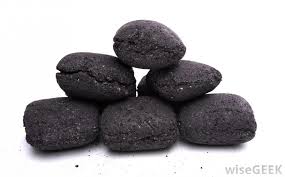The World Bank’s Biomass Energy Initiative for Africa (BEIA) has funded projects with the ARTI to build the charcoal briquettes value chain in Tanzania.
The goal: transforming the existing industry into a rewarding, sustainable development opportunity by creating green jobs in rural areas.
On a practical level, the Waste to Wealth campaign will empower rural inhabitants and existing charcoal producers with knowledge to produce charcoal from agricultural waste and other dry biomass.
The motivation behind this project was to start mitigating forest destruction through current charcoal manufacturing processes without undue influence on people’s income and livelihood.
The rapid urbanisation of countries like Tanzania is leading to an unrealistic situation where fuel comes at a high cost to the forests and the larger eco-system for a very small economic reward. In order to stop this process, rural people must be empowered with the knowledge to produce and supply charcoal in a sustainable manner. The socio-economic benefit of this project justifies its implementation. The consequences of not promoting such initiatives are indeed dire.
In 2011, efforts were boosted through funding of the World Bank’s Biomass Energy Initiative for Africa which has allowed the training of 720 people in two districts and equipping them with 120 kilns and 120 manual briquette extruders. Four community based enterprises have also been established with funding, linking villages and building the production and sales capacity to complete the charcoal briquettes value chain.
The process
ARTI acts as the innovation broker developing the charcoal briquette value chain through the Waste to Wealth project. The project first focused at the producer level training and equipping villages to fabricate their own kilns, produce charcoal powder from agricultural waste and other dry biomass and making charcoal briquettes. As villages get trained ARTI links them up into a network of villages to form a community based enterprise, or CBE, focused on briquette production, sensitisation and sales. ARTI supports the CBE’s with setting up their production process and developing the enterprise skills. Once a CBE has demonstrated its commitment to the production of charcoal briquettes ARTI supports them with an electrical briquette extruder(s) on loan, which the CBE pays back with briquettes.
The District Forest Officers, who are responsible for issuing permits to cut trees for charcoal production, have provided incredible support in terms of time, knowledge and working space.
This support comes from the fact that in the past they had no choice but to issue permits as there was no alternative to wood charcoal. Charcoal briquettes offers that alternatives.
Women have also started to benefit from the charcoal briquette trade, as production can be carried out closer to home and in conjunction with other agricultural activities. Unlike the traditional charcoal trade, charcoal briquette enterprises are proving to be more gender balanced.
What are the challenges and opportunities for expanding the program
The Waste to Wealth project is currently in the pilot stage and the charcoal briquettes supply does not even represent 0.05% of the estimated 650 million USD trade in charcoal annually in Tanzania. In order to reach 1% or even 10% of this industry ARTI must invest heavily in training and equipping rural producers as well as generated market demand for charcoal briquettes through sensitisation campaigns and the overall development of the value change. Work also needs to be done on created the policies and incentives to help facilitate the transition from wood charcoal to charcoal briquettes.
The technology originates from ARTI-India, a research and technology institute based in Pune, India. With the blessing of ARTI-India, ARTI-TZ adopted the technology seeing the huge potential for application in Tanzania.
The kilns used to produce the char powder are made from used oil drums. Initially larger kilns were used that required nine drums to produce. They have since changed the type of kiln used to a smaller one that requires only two oil drums to fabricate, which is much cheaper and produces char powder more efficiently. In order to produce the briquettes it modifies manual and electrical meat mincers. They have proven to be a cost effective way to produce quality charcoal briquettes with a simple technology. While the Waste to Wealth project is still at the pilot stage it is already proving to be a viable alternative to wood charcoal and a great benefit to communities. People no longer have to go to the forest to cut trees for charcoal. They can earn an income from an activity that is not environmentally destructive.






